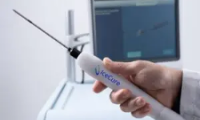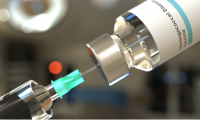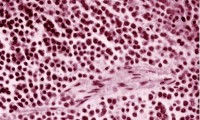-
IceCure submits final breast cancer cryoablation data to FDA
- Source: drugdu
- 112
- April 22, 2024
-
GSK’s Five-in-One Meningococcal Vaccine Under Review by the FDA
- Source: drugdu
- 144
- April 20, 2024
-
FDA Approves Stelara Biosimilar Selarsdi to Treat Psoriasis, Psoriatic Arthritis
- Source: drugdu
- 78
- April 19, 2024
-
Preclinical Safety Signal Prompts FDA Clinical Hold on Neumora Schizophrenia Drug
- Source: drugdu
- 82
- April 17, 2024
-
FDA approves new administration routes for Xcopri
- Source: drugdu
- 104
- April 16, 2024
-
Candel wins FDA orphan drug designation for pancreatic cancer drug
- Source: drugdu
- 74
- April 16, 2024
-
Pfizer Asks FDA to Approve RSV Vaccine for Adults as Young as 18 Years Old
- Source: drugdu
- 142
- April 15, 2024
-
FDA Approves New Administration Methods for SK Life Science’s Xcorpi for Adults with Partial-Onset Seizures
- Source: drugdu
- 118
- April 13, 2024
-
Oryzon wins FDA approval to begin SCLC treatment trial
- Source: drugdu
- 77
- April 11, 2024
-
Cell Therapy Now Set to Reach More Patients With Expanded FDA Nod for 2 Multiple Myeloma Drugs
- Source: drugdu
- 97
- April 10, 2024
your submission has already been received.
OK
Subscribe
Please enter a valid Email address!
Submit
The most relevant industry news & insight will be sent to you every two weeks.













